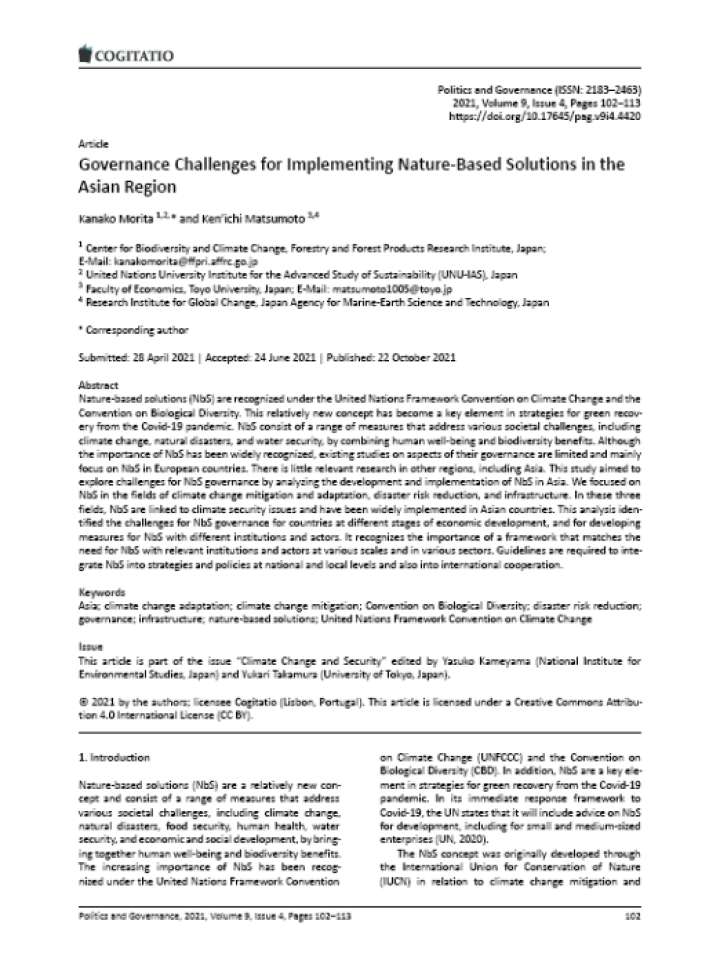Governance challenges for implementing nature-based solutions in the Asian region
This study aimed to explore challenges for nature-based solutions (NbS) governance by analyzing the development and implementation of NbS in Asia. NbS consist of a range of measures that address various societal challenges, including climate change, natural disasters, and water security, by combining human well-being and biodiversity benefits. Although the importance of NbS has been widely recognized, existing studies on aspects of their governance are limited and mainly focus on NbS in European countries. There is little relevant research in other regions, including Asia. The authors focused on NbS in the fields of climate change mitigation and adaptation, disaster risk reduction, and infrastructure. In these three fields, NbS are linked to climate security issues and have been widely implemented in Asian countries.
The study found that there is a need to coordinate fragmented institutions and actors to move forward with the implementation of NbS in Asia. In addition, there is a need to use the experience and lessons learned from the past, including from programs/projects and measures that are not necessarily referred to as NbS. The fragmentation of institutions and actors is evident in the different types of NbS and each type has unique challenges. This makes it difficult to compare different types of NbS in each country. Particularly for developing countries, the different types of NbS are supported by various actors (including international finance mechanisms and donors), making it more difficult for these countries to coordinate NbS implementation and to integrate NbS into their national strategies and plans. Furthermore, compared with Europe, in Asia, the links between NbS and strategies for a green recovery from the Covid‐19 pandemic are limited. There is also a limited framework to link the various actors (including private sector and financial institutions) and NbS in both developed and developing countries.
Explore further

